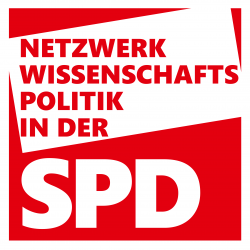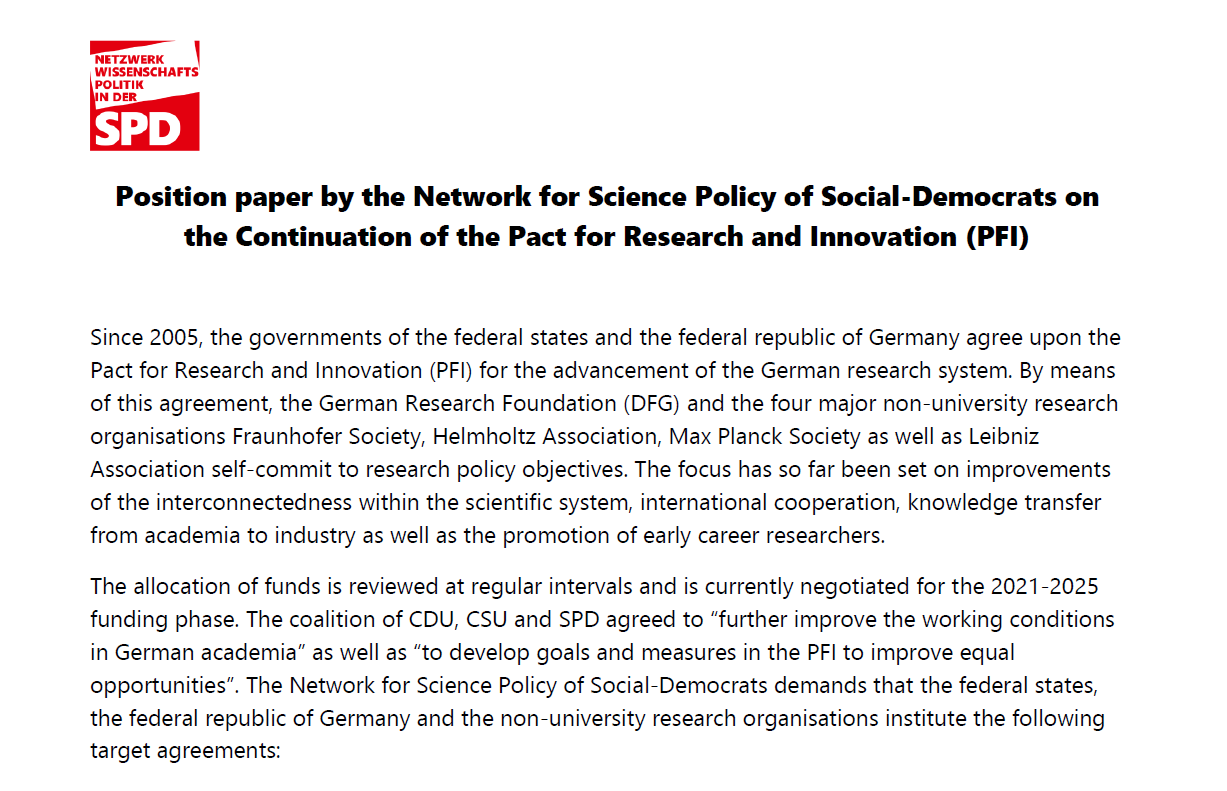With regard to the current negotiations on the Pact for Research and Innovation (PFI), the “Network for Science Policy of Social-Democrats” has formulated five essential demands for improving working conditions in academia.
So far, the focus has been on interconnections within the scientific system, international cooperations, knowledge transfer from academia to industry as well as the promotion of early career researchers. We observe with concern that the current PFI negotiations tackle working conditions only half-heartedly. This is why we demand that the federal states and the federal republic of Germany finally tackle the underlying issues explicitly and to set binding agreements in the PFI.
Research and innovation cannot be separated from the more than 100,000 employees at the numerous research centres. Undeniably, research can only serve social progress if there are no frictional losses. Good working conditions, fair participation, and ambitious equality goals must therefore be set as central organisational goals in these pact negotiations.
Lisa Frerichs & Martin Grund. Thanks to Michael Gerloff for his support at translating the paper.
Find the German version of this paper here.
Position paper by the Network for Science Policy of Social-Democrats on the Continuation of the Pact for Research and Innovation (PFI)
Since 2005, the governments of the federal states and the federal republic of Germany agree upon the Pact for Research and Innovation (PFI) for the advancement of the German research system. By means of this agreement, the German Research Foundation (DFG) and the four major non-university research organisations Fraunhofer Society, Helmholtz Association, Max Planck Society as well as Leibniz Association self-commit to research policy objectives. The focus has so far been set on improvements of the interconnectedness within the scientific system, international cooperation, knowledge transfer from academia to industry as well as the promotion of early career researchers.
The allocation of funds is reviewed at regular intervals and is currently negotiated for the 2021-2025 funding phase. The coalition of CDU, CSU and SPD agreed to “further improve the working conditions in German academia” as well as “to develop goals and measures in the PFI to improve equal opportunities”. The Network for Science Policy of Social-Democrats demands that the federal states, the federal republic of Germany and the non-university research organisations institute the following target agreements:
- Enforce 100% wage agreement Public funds should only be used for wage agreements. Therefore, the wage agreement for the public service (TVöD) must be the basis for all organizations financed by the PFI.
- Reduce temporary employment The proportion of temporary contracts must be reduced. In a first step, the number of temporary contracts has to be lowered by 20% until 2025.
- Establish equality for women and men According to a report by the Joint Science Conference (GWK), the share of women in management positions at the Fraunhofer Society was 4.4% in 2017. The cascade model that sets the target for women quota to the proportion of the lower hierarchy must be revisited and finally revoked. So far, it did not increase the proportion of women in management positions effectively. Instead of ever-increasing mentoring efforts and leadership academies for women, it needs ambitious targets for shares of women in management positions and reliable career paths. 50% of all professorships and management and research staff positions must be allotted to women.
- Enable participation Non-university research institutions must revisit and improve the opportunities for internal participation. Status groups such as doctoral researchers, postdocs, support and student staff should be involved in committees and appointment procedures. Institute councils should be elected at the institute level.
- Statistically record share of temporary contracts For a holistic assessment of the deployment of temporary contracts, the proportion of temporary and permanent employees at all non-university research organisations must be recorded alongside with statistical details such as gender, qualification level and duration of employment.
04.04.2019


